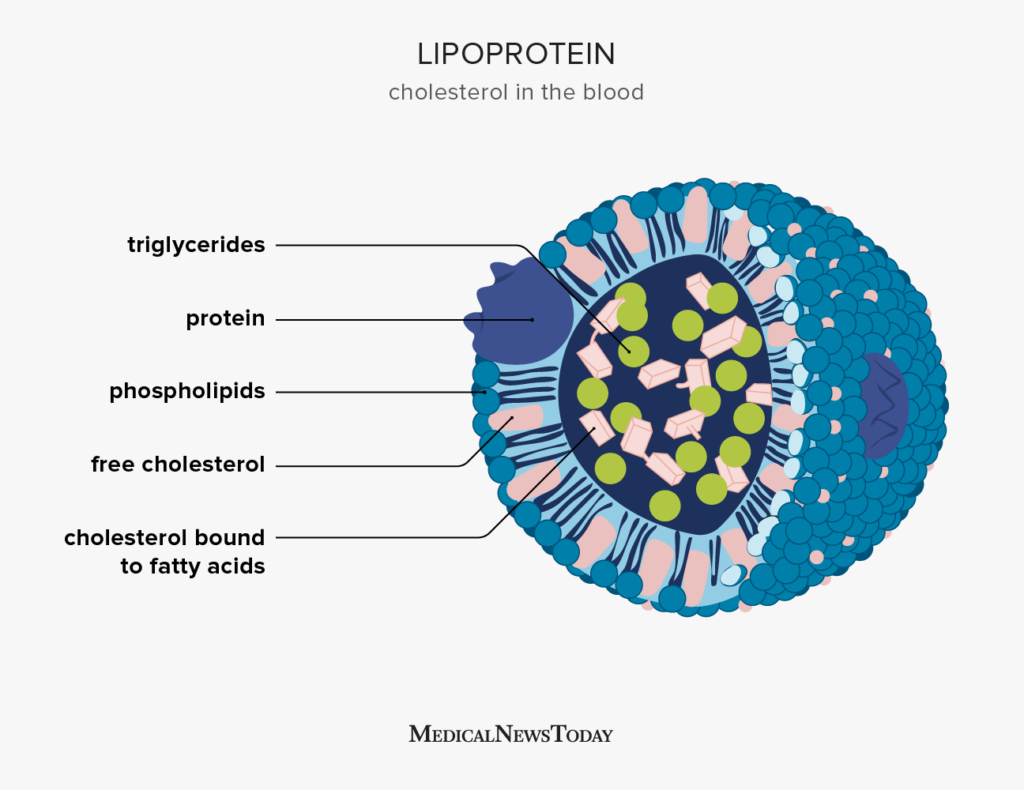Cholesterols are any organic compound
- They’re a type of lipid, like fats.
- Cholesterol is synthesised in the liver. Your body is said to make all the cholesterol that is required.
- They’re mainly sourced from animal products.
- They’re present in all your cells and they’re necessary to produce hormones, vitamin D, etc.
Cholesterol, when too highly concentrated, can form atherosclerotic plaque in your arteries, leading to high blood pressure and increasing the risk of heart disease, stroke, etc.
We consider cholesterol in the form of lipoproteins: HDL, LDL and VLDL. Lipoproteins are basically transport pods that enable lipids (which are not soluble in water) to be circulated in the bloodstream.

- HDL (high-density lipoprotein) — considered ‘good’ cholesterol since it carries excess cholesterol to the liver for breakdown and removal, contributing to the removal of atherosclerotic plaque.
- LDL (low-density lipoprotein) — considered ‘bad’ cholesterol since it can result in atherosclerotic plaque build-up in arteries.